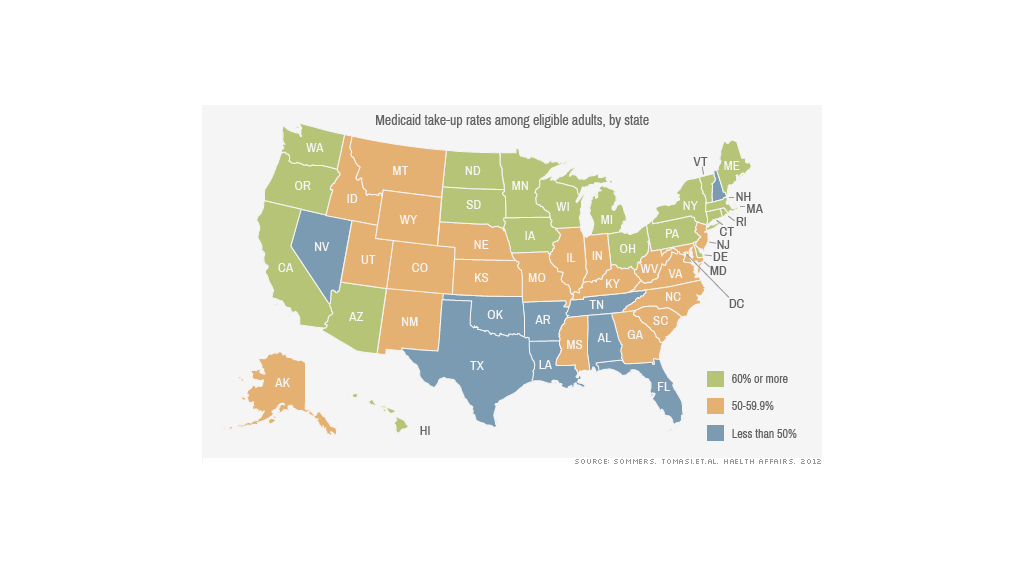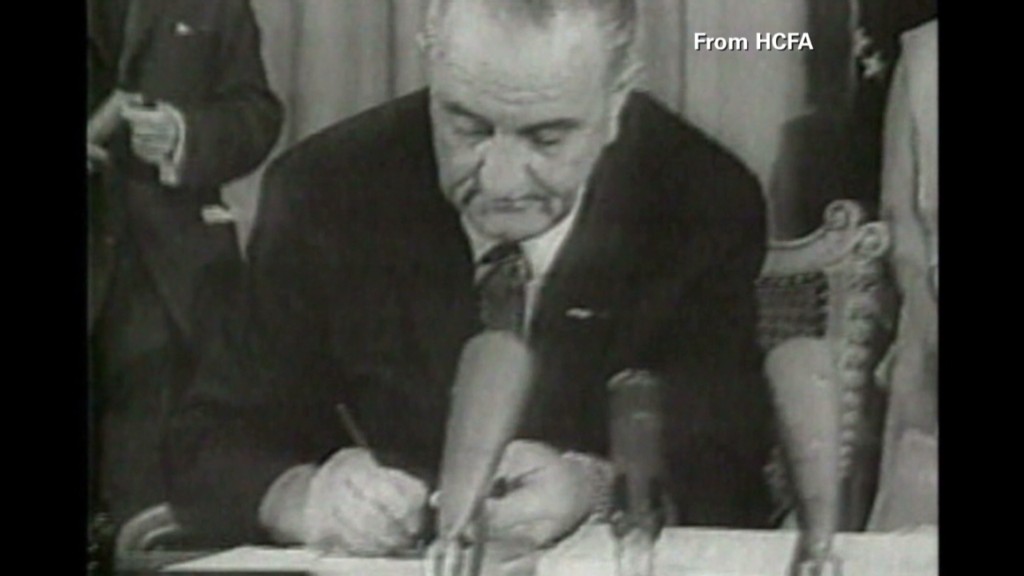
States don't want them, but they have to take them.
More than 100,000 people were approved for Medicaid last month in the 25 states that have opted not to expand the government program, according to a CNNMoney analysis. These folks currently qualified for Medicaid, but had not enrolled. Likely drawn in by all the campaigns to enroll the uninsured, the so-called woodwork effect, they applied through the federal Obamacare exchange.
"They are picking up people who should have been on Medicaid all along, but there was never this outreach effort," said Sara Rosenbaum, law professor at George Washington University's School of Public Health.
Expanding Medicaid has split the nation since the Supreme Court ruled in 2012 that states could decide whether to widen coverage to all residents up to 138% of the poverty level, or $15,900 for individuals and $32,500 for a family of four, as Obamacare called for. The federal government will pick up the total cost of the expansion for the first three years, after which the funding will phase down to 90%.
Many states, mainly led by Republican governors and legislators, have said they cannot afford to extend the public health program, which has 54.1 million adults and 5.5 million children enrolled nationwide. Medicaid ate up a quarter of total state spending in fiscal 2013, outstripping every other category, according to the National Association of State Budget Officers.
Share your story: Are you signing up for Obamacare?
Currently, states set their own eligibility criteria. Some are generous. New York, for instance, allows parents with incomes up to 150% of poverty and childless adults up to the poverty line to enroll. Others are much more restrictive, such as Texas, which only extends the benefits to working parents with incomes up to 25% of the poverty line and jobless parents up to 12%.
But many states also don't do a good job reaching out to people who meet the current standards. Only an estimated 63% of eligible adults are enrolled, as are 87% of children.
Now, however, there is an unprecedented national effort to sign people up for private insurance on the exchanges or for Medicaid. The federal government is pouring millions of dollars into non-profit groups and community health centers to encourage enrollment. Some organizations are checking in with people who are eligible for food stamps or unemployment insurance to see whether they qualify for Medicaid.
As a result, Medicaid rolls are mushrooming everywhere, with nearly 400,000 people signing up in October nationwide. The numbers are also notable in non-expansion states, including 13,000 in Florida and 11,700 in Texas, for instance. The applications will be sent from the federal exchange to the states, which will complete the enrollment.

Some state officials are not pleased.
"...forcing people to take government welfare is not the answer to increasing access to quality health care," said Josh Havens, spokesman for Texas Governor Rick Perry, a staunch opponent to Medicaid expansion. "Medicaid remains an unsustainable, broken system, and forcing more people into it will just push state budgets closer to the breaking point."
States will have to come up with the funds to pay for these additional enrollees, since the federal government only covers a share of the cost of the currently eligible.
"It's not free. It's 30 to 50 cents on the dollar," said Jeff Goldsmith, associate professor of public health at University of Virginia. "This was the core of states' anxiety about this bill."


